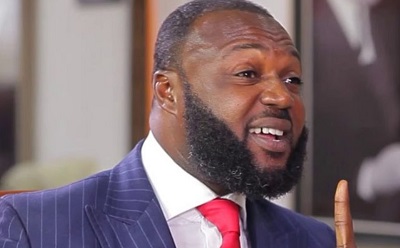The first criminal trial in relation to the recent banking crisis started on Tuesday, October 15, with all the four accused persons pleading not guilty to the charges levelled against them.
The Founder of the defunct Capital Bank, William Ato Essien; the Managing Director of the bank, Fitzgerald Odonkor, and two other persons — Tettey Nettey, the Managing Director of MC Management Services, a company said to be owned by Essien, and Kate Quartey-Papafio, a businesswoman and Managing Director of Reroy Cables Company Limited — were arraigned before the Accra High Court on 26 counts.
They pleaded not guilty to all the charges of stealing, abetment to stealing, conspiracy to steal and money laundering.
Bail
Following a bail application by their respective lawyers, Essien, Nettey and Odonkor were each granted bail in the sum of GH¢200 million, while Quartey-Papafio was admitted to bail in the sum of GH¢75 million.
The accused persons must also provide four sureties each.
“The sureties should be persons of good character and substance,” the presiding judge, Justice Eric Kyei-Baffour, ordered.
As part of the bail conditions, Justice Kyei-Baffour further directed the accused to deposit their passports at the court’s registry.
Read also
Ato Essien, 3 others on trial for Capital Bank collapse
GCB Bank lost GHȼ1bn in 4 months after absorbing UT, Capital banks
I never took loan from Capital Bank - Pastor Otabil
Receivers sue Otabil, Ato Essien and others to recover GH₵837million
Revocation of licence
Capital Bank was one of the first banks that collapsed after a massive clean-up of financial institutions by the Bank of Ghana (BoG) started in 2017.
On August 14, 2017, its licence and that of UT Bank were revoked by the BoG, after it had declared them insolvent.
The BoG allowed the state-owned bank, GCB Bank, to acquire the two banks in order to protect depositors’ funds and also enable them to stay afloat.
The hurricane that swept through the banking sector due to the collapse of the two banks further heightened in August 2018 when the central bank collapsed five other indigenous banks and merged them into one entity, known as Consolidated Bank, Ghana.
Reason for the trial
The prosecution, led by the Attorney-General (A-G), Ms Gloria Afua Akuffo, accused the four people of engaging in various illegal acts that led to the dissipation of the GH¢620 million liquidity support given to Capital Bank by the BoG between June 2015 and November 2016.
It is the case of the A-G that Essien, with Odonkor’s aid, transferred the liquidity support to certain companies either controlled by him or in which he had interest.
According to the A-G, GH¢130 million of the liquidity support was transferred to MC Management Services, which was later presented to the BoG as the initial capital to set up Sovereign Bank, another bank in which Essien had an interest.
She further alleged that between June and October 2015, Essien, aided by Odonkor, appropriated GH¢c27.5 million of the liquidity support by carrying it in jute bags.
“The money was purportedly used as payment for business promotion,” she told the court.
Ms Akuffo also accused Essien of giving some liquidity support to his cronies in the form of a loan to be used to buy shares in Capital Bank.
With regard to Quartey-Papafio, the A-G said as part of the scheme to further dissipate the GH¢620 million liquidity support, Essien transferred GH¢70 million of the money into Quartey-Papafio’s bank account at Cal Bank.
She further accused Quartey-Papafio of trying to withdraw the money in 2017, even though she was aware that Capital Bank had collapsed and was in receivership.
The withdrawal, the A-G submitted, was, however, prevented by the receivers of Capital Bank.
“Stealing with consent of owner”
During his application for bail, counsel for Quartey-Papafio, Dr Dominic Ayine, a former Deputy A-G, rebutted the facts presented by the A-G.
He described the case as a ground-breaking one in the country’s jurisprudence.
“This is going to be the first case in the history of this country that stealing has occurred with the consent of the owner,” counsel contended.
Making his case, he argued that the GH¢620 million liquidity support was essentially a loan that was granted to Capital Bank by the BoG, which was supposed to be paid with interest.
“Essentially, this was money belonging to Capital Bank,” he said.
Counsel further submitted that per Section 60 of the Companies Act, 2019 (Act 992), there was nothing wrong with a lending institution giving out loans for people to buy shares in that institution.
Disclosures
In compliance with a recent Supreme Court judgment on disclosures, Justice Kyei-Baffour ordered the prosecution to furnish the accused or their lawyers with all the documents on which it would rely for the trial.
The documents include the charge sheets, the facts of the case, investigative caution statements, prosecution witnesses’ statements and any other evidence that the prosecution will use for its case.
“The prosecution is to comply by November 13, 2019,” the judge ordered.
Hearing continues on November 20, 2019.

